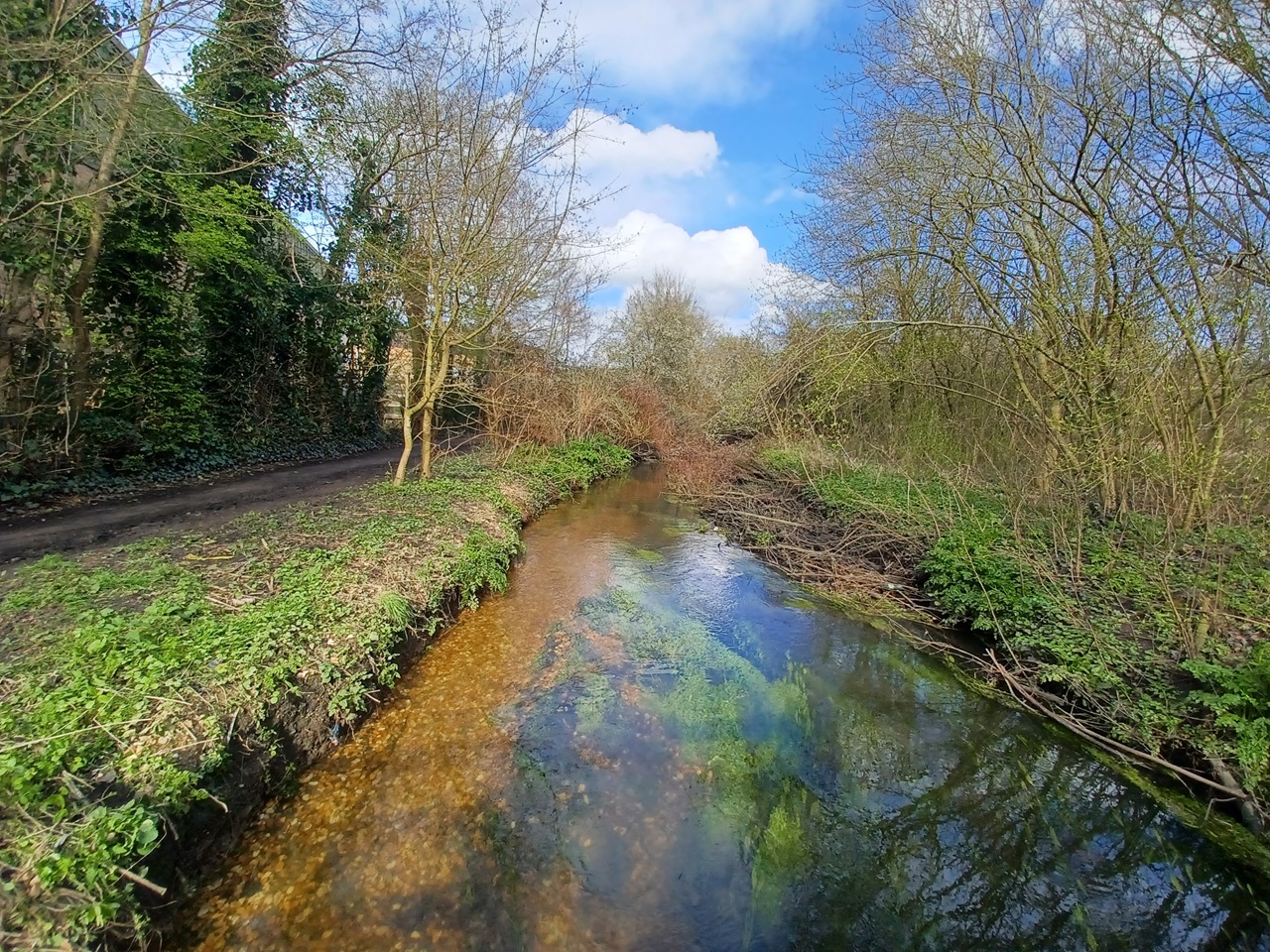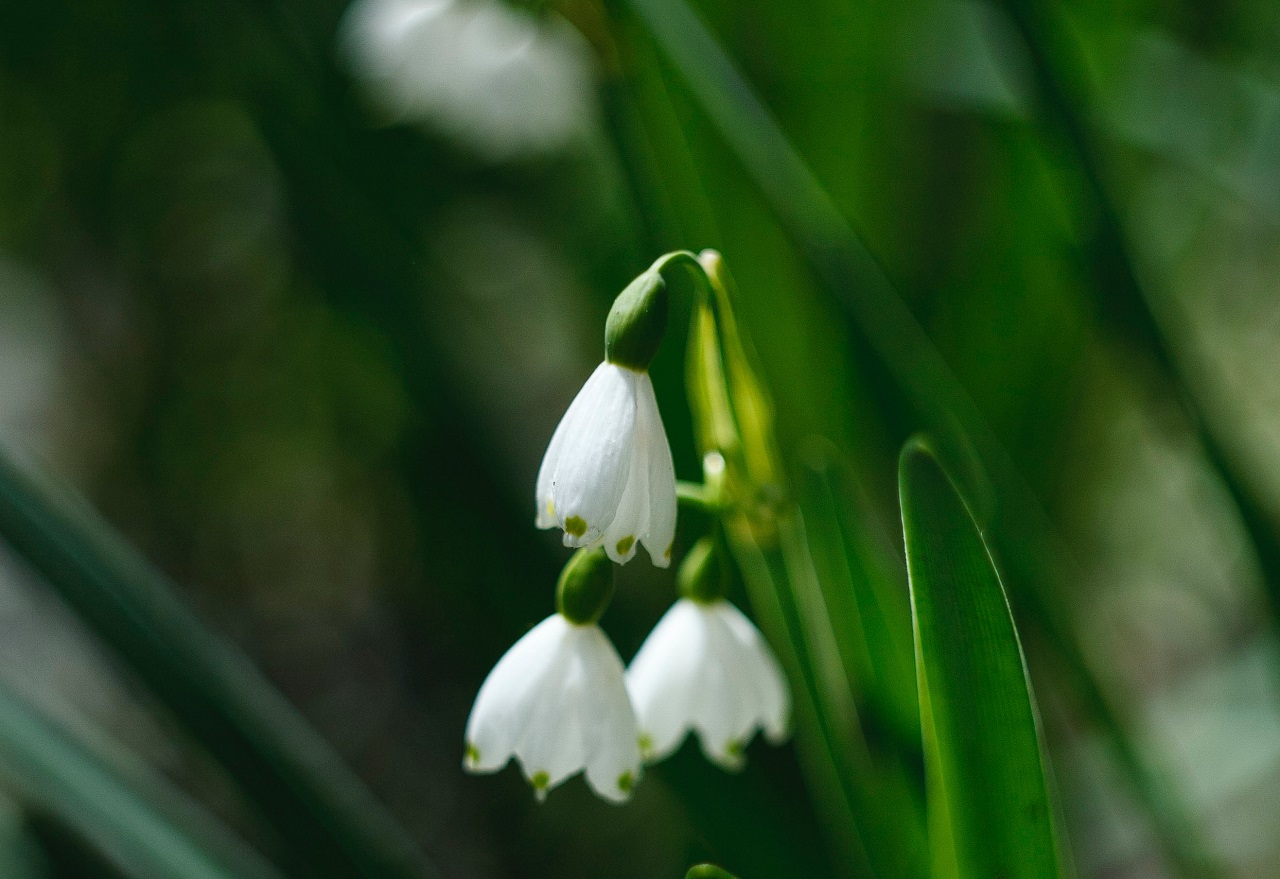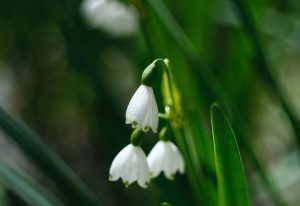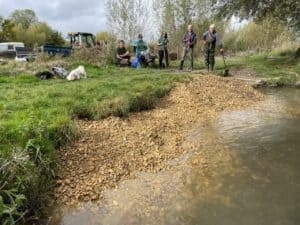Assistant Project Officer Luke Beckett reports on a week-long series of events with volunteers in mid-March, putting gravel into a stretch of a River Loddon tributary to improve conditions for river wildlife.
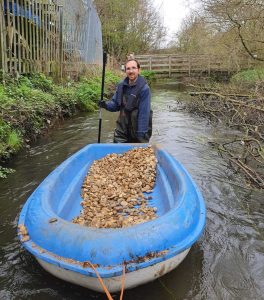
Anglers and conservation enthusiasts were among more than a dozen volunteers who joined us for the exhausting but rewarding task of installing more than 19 tonnes of gravel into the River Blackwater. In joining us earlier this month, they added a vital resource to help nature thrive into a 200 metre stretch of the river in Aldershot.
The newly seeded gravel, which is the final part of our Blackwater Valley river restoration work, will provide improved habitat for macroinvertebrates such as beetles, dragonflies and mayflies. It will also help aquatic plants thrive, as well as increasing spawning habitat for fish.
The River Blackwater at Ivy Road has historically suffered from bank and riverbed modifications. This section of the River Loddon catchment has been widened and deepened, leaving a uniform channel with little variation in water depth.
The channel has lacked flow energy and habitat diversity and subsequently, silt and fine sediments had built up, smothering the riverbed. Moreover, the site is just downstream of the Aldershot sewage treatment plant, which regularly discharges sewage effluent into the channel.
Since 2021, the South East Rivers Trust has worked with support from the Environment Agency and the Blackwater Valley Countryside Partnership, plus local volunteers, to improve this stretch of river.
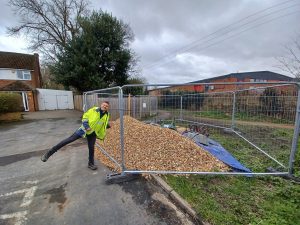
The in-channel deflectors and berms previously installed have helped to narrow the channel and increase water flow velocity, as well as habitat complexity. The increased velocity has already cleared much of the fine sediments and silt.
The newly-seeded land-based gravel will move around with the natural ebb and flow of the river, settling to form natural river features, such as bars, riffles and deeper pools.
This clean gravel and variety of river habitats is essential for river life: the River Blackwater supports a number of fish species – such as chubb, roach, perch, dace, gudgeon and rudd – all of which should benefit from this improved spawning habitat.
Gravel seeding is not the most glamorous of tasks. This site delivery was no different and was made difficult by the lack of access routes.
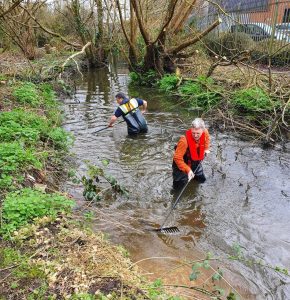
Large vehicle access to the river was not possible, which meant a lot of moving wheelbarrows loaded with heavy gravel from our drop off location to the channel itself.
The distance was at least 75 metres and up to 200 metres to push the gravel to the correct places, making this tough physical work. Wader wearing volunteers also had to rake the gravel once in the riverbed, sometimes having taken it to an appropriate location in a dinghy.
It was slow going at times, leaving us questioning whether the gravel pile was even going down! But, after four days, including a lot of rain, not enough sunshine and many teas, coffees and biscuits, the gravel pile was finally gone and the last wheelbarrow and boat load were emptied.
The team took a moment to look over their hard work from Ivy Bridge, where a few curious fish were already checking out the new riverbed, before the heavens opened once again!
This brings our river restoration work at Ivy Road Recreational Ground to a close, but we look forward to returning over the coming months and years to see how the channel responds.
